AITA: 17 year old entered my car and stole things of value and his mother thinks an apology is enough
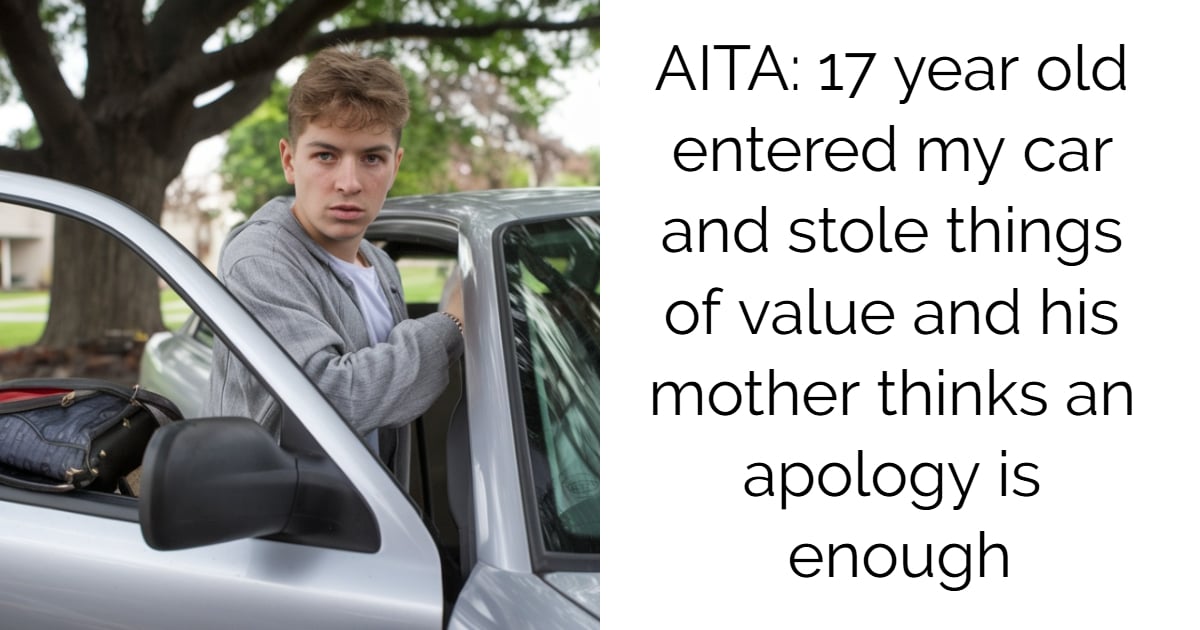
In today’s world, even a simple family staycation can take an unexpected turn, revealing the audacity of some individuals and the challenges of seeking justice. Imagine treating your family to a well-deserved break, only to have it marred by theft and confrontation.
This scenario unfolded for one family, whose relaxing getaway was disrupted when their belongings were stolen from their valet-parked car. The situation escalated into a tense encounter with the perpetrator’s unapologetic mother, leaving the victims questioning their pursuit of justice. Dive into their story below to explore the complexities of accountability and parental responsibility.
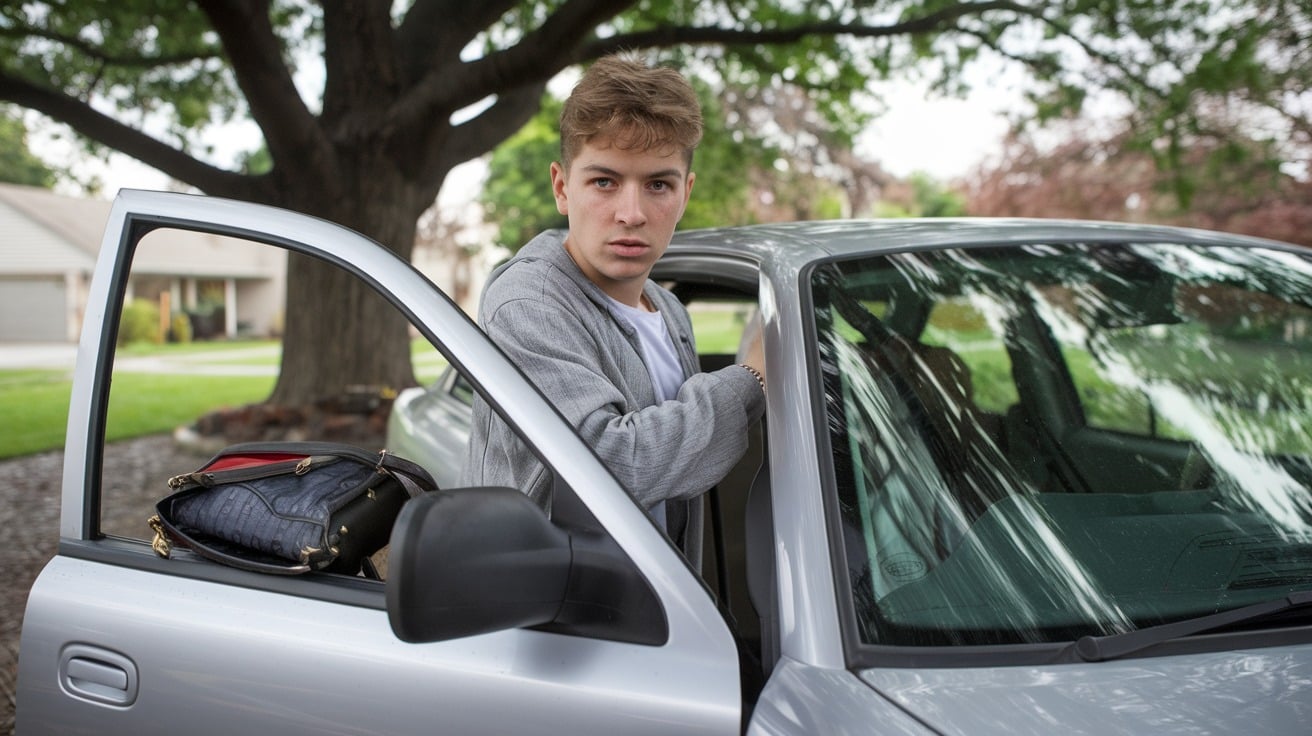
‘AITA: 17 year old entered my car and stole things of value and his mother thinks an apology is enough’

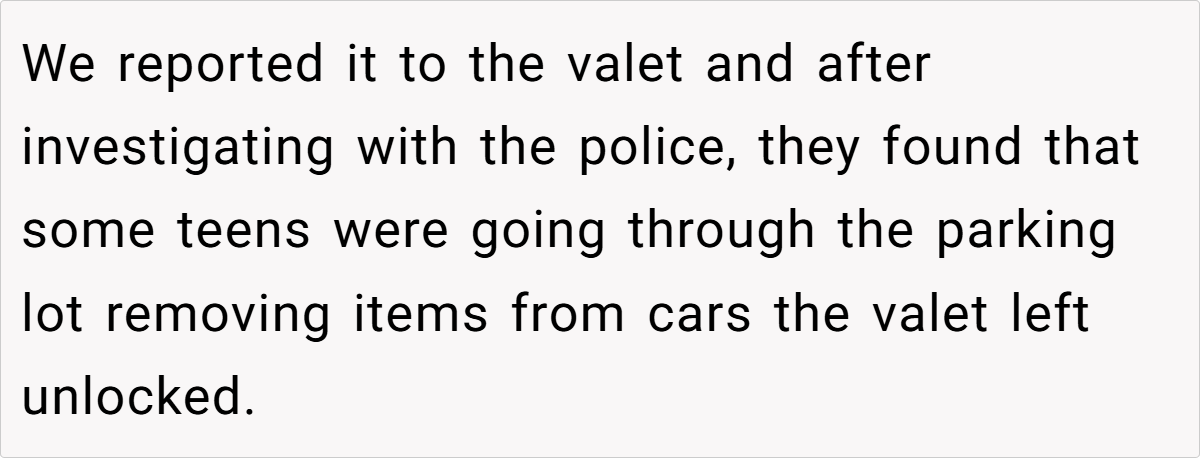
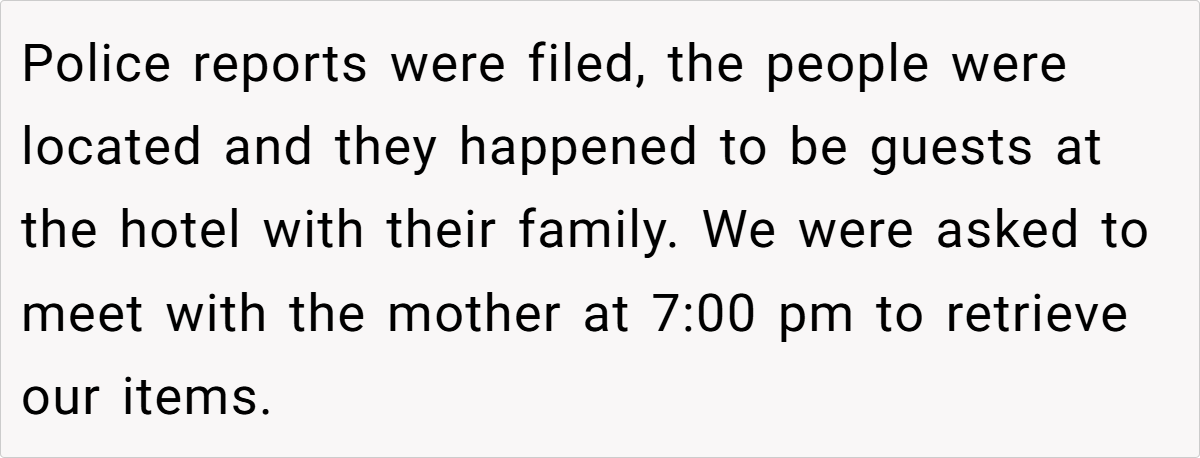
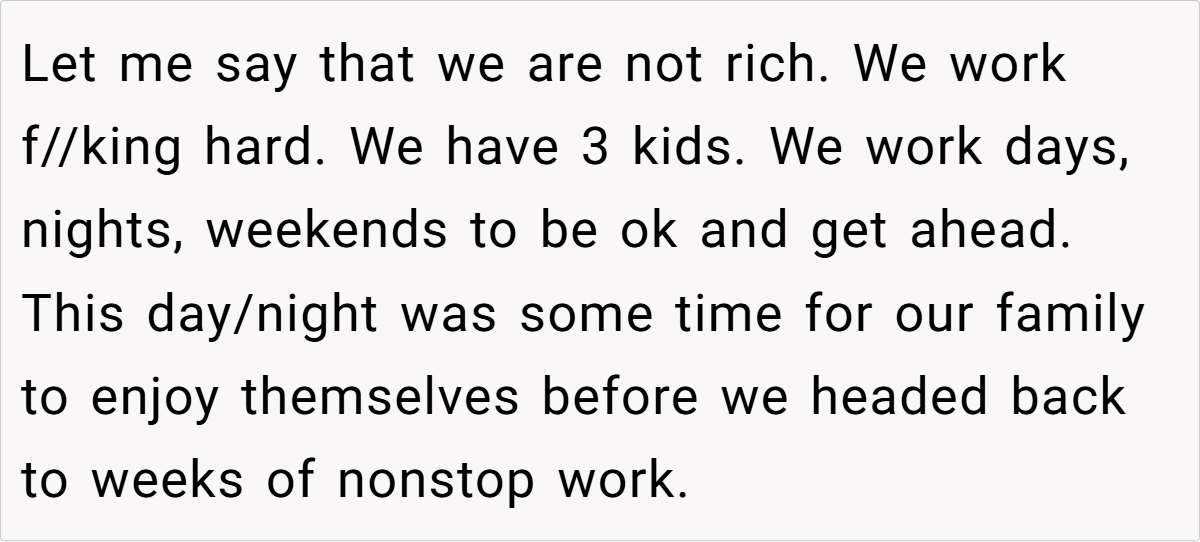

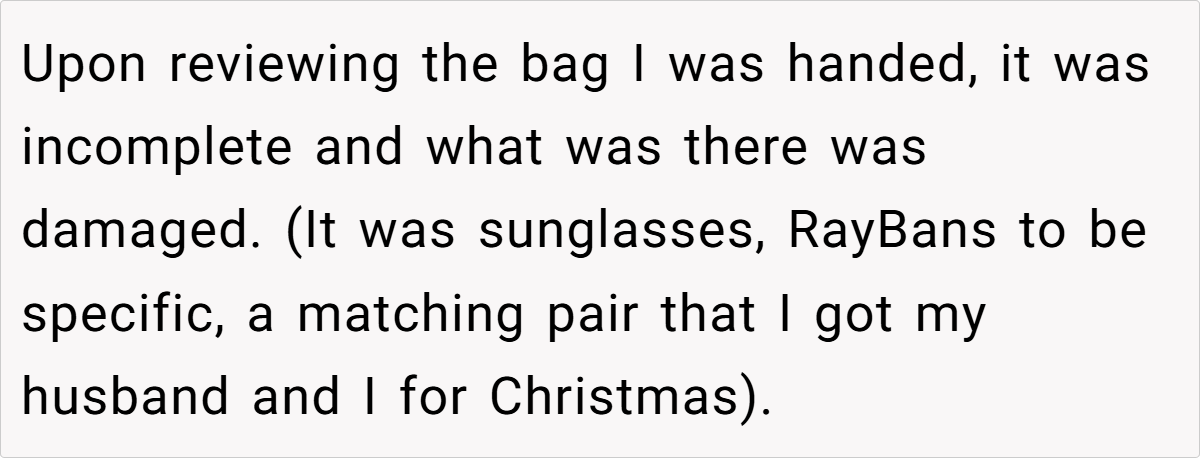
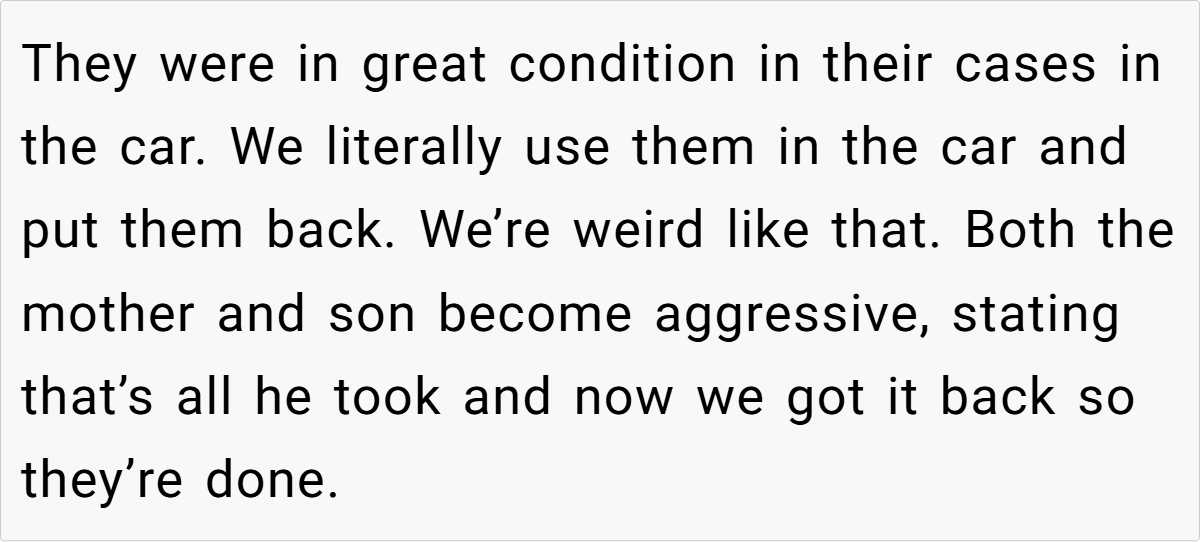

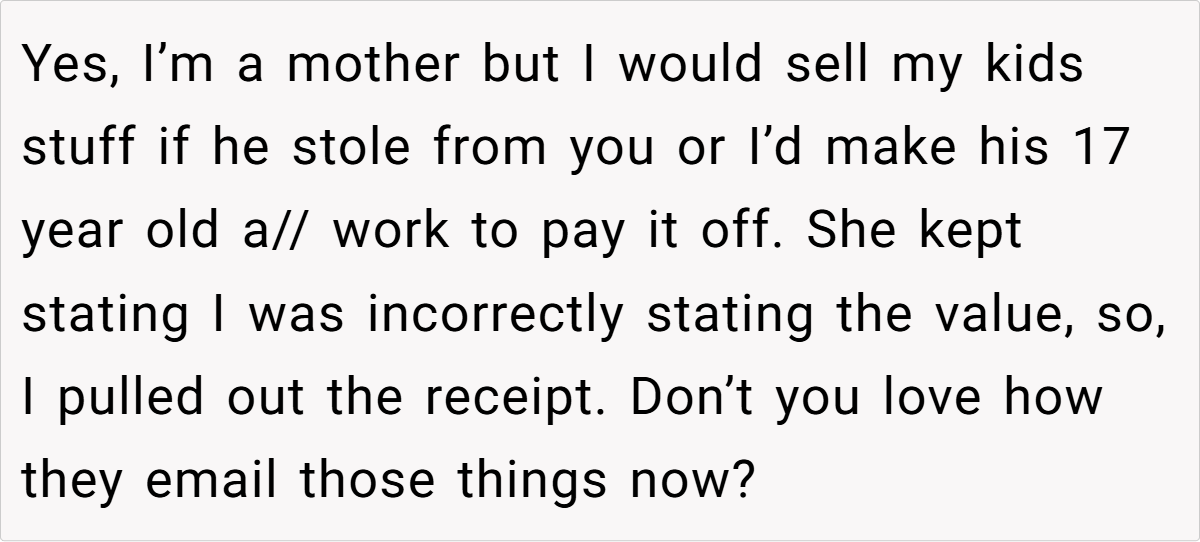





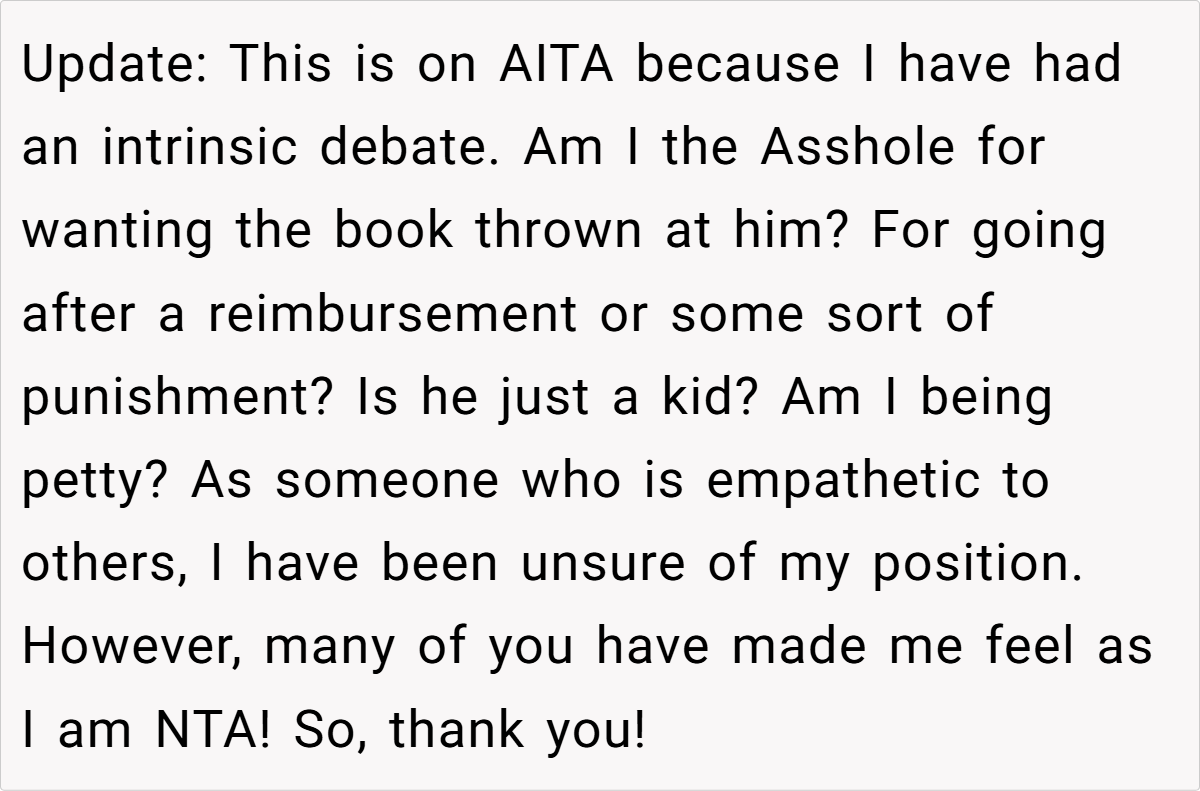
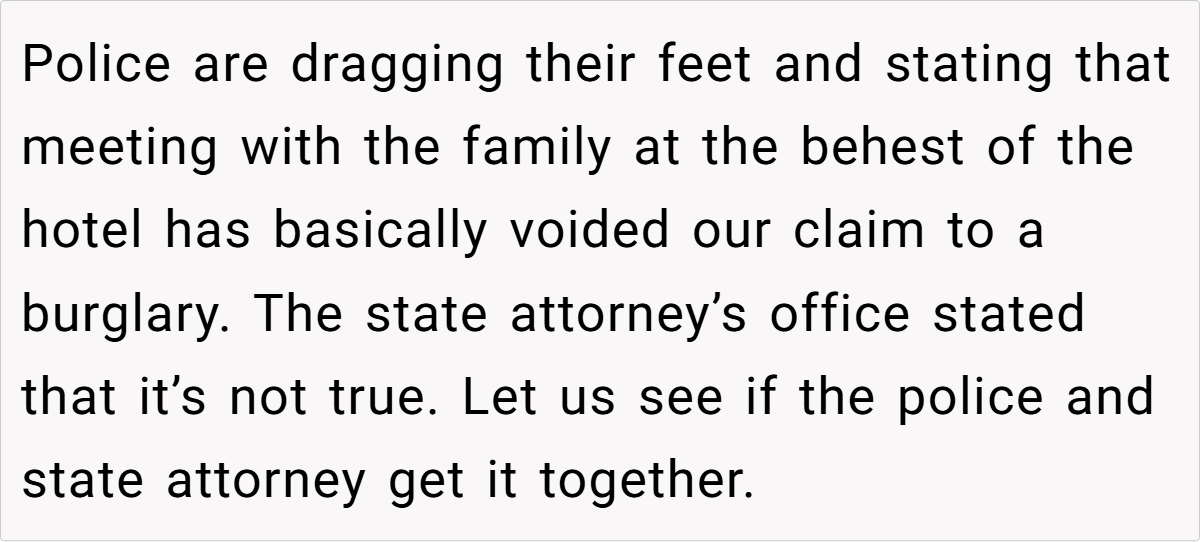
Expert Analysis
This incident highlights the emotional turmoil victims endure when their personal space and belongings are violated. The family’s anticipation of a peaceful retreat was shattered, leading to feelings of anger, betrayal, and frustration. Such experiences can have lasting psychological impacts, eroding one’s sense of security and trust in others.
The core conflict arises from the theft committed by a minor and the subsequent response of the parent. In many jurisdictions, parents can be held liable for the intentional acts of their children, including theft. These “parental responsibility laws” are designed to encourage guardians to supervise and control their children’s behavior, ensuring they understand the consequences of unlawful actions. (Source: FINDLAW)
In this case, the mother’s dismissive attitude and refusal to offer adequate restitution not only exacerbate the victim’s distress but also raise concerns about the minor’s understanding of accountability. Parental reactions play a crucial role in shaping a child’s moral compass; a lack of appropriate response may inadvertently reinforce negative behaviors.
Dr. Rebecca Pirius, an attorney specializing in juvenile law, emphasizes that juveniles who commit theft face charges similar to adults, albeit in juvenile court. Penalties can range from community service and restitution to detention in a juvenile facility, depending on the severity of the offense and the minor’s prior record.
She notes, “Judges can impose a wide range of penalties for a juvenile, such as community service, restitution, counseling, treatment, curfews, probation, or driver’s license suspension.”
Addressing such conflicts requires a multifaceted approach:
- Legal Recourse: Victims should pursue legal action to hold the offender accountable, which may involve filing police reports and seeking restitution through civil or criminal proceedings.
- Parental Intervention: Parents must acknowledge their child’s wrongdoing and take steps to rectify the situation, including compensating the victims and ensuring the child faces appropriate consequences.
- Educational Programs: Implementing programs that educate minors about the repercussions of theft and the importance of ethical behavior can deter future incidents.
By combining legal measures with proactive parenting and education, society can address the root causes of juvenile delinquency and promote a culture of responsibility and respect.
Here’s what Redditors had to say:


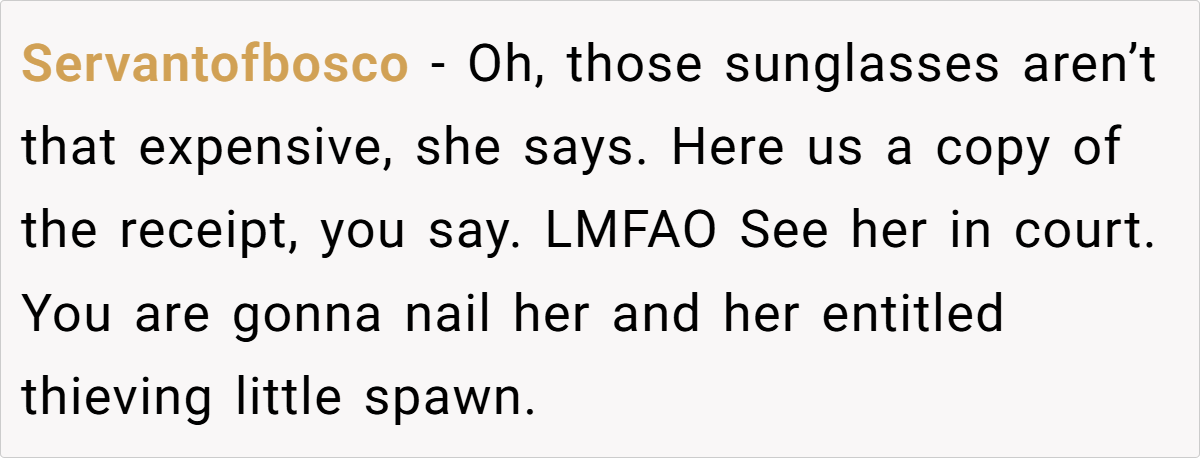




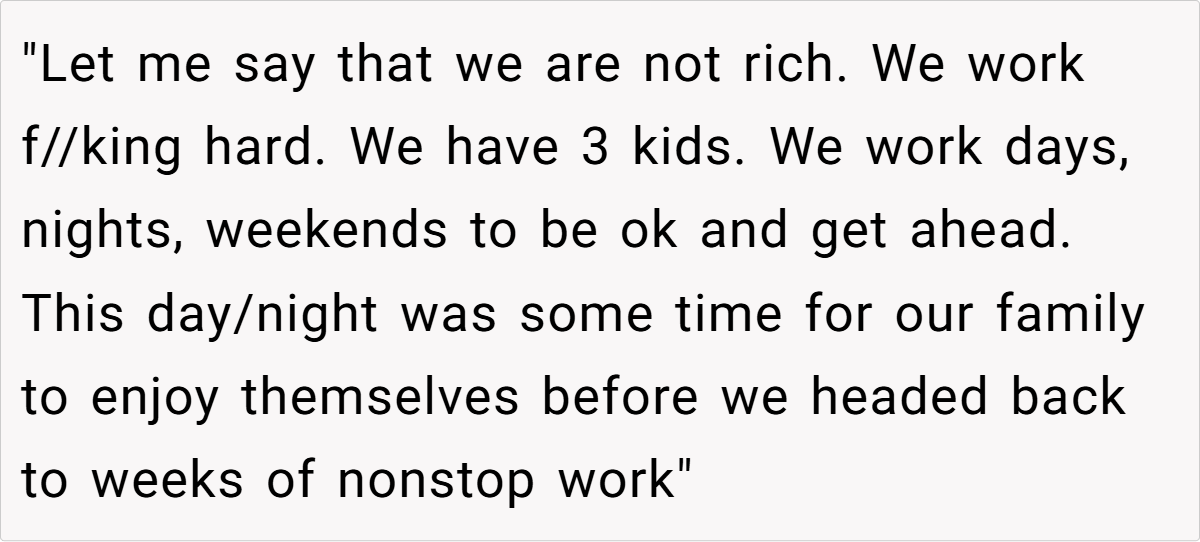
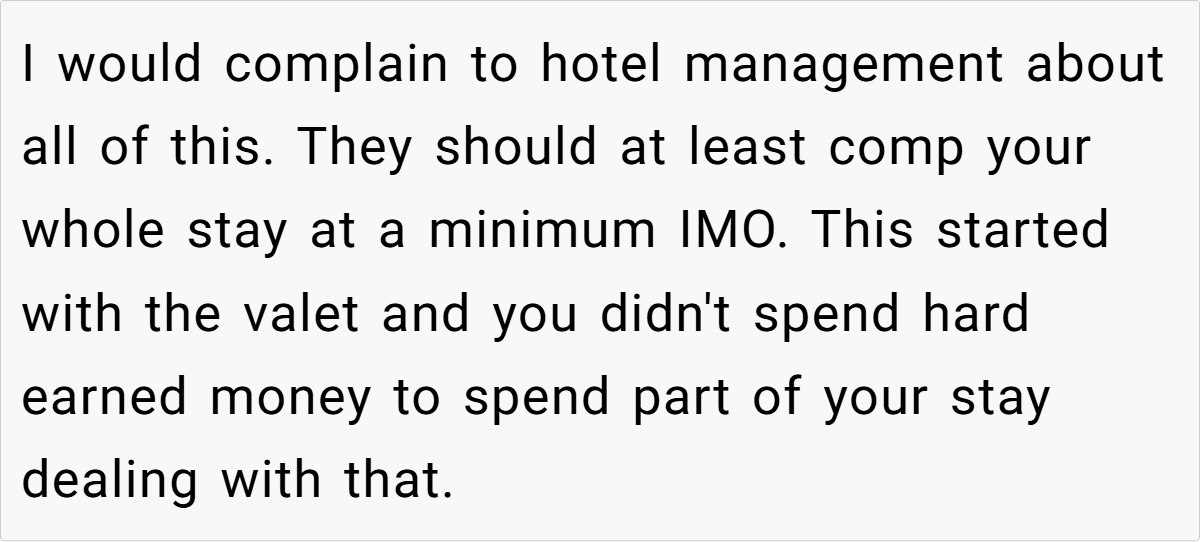

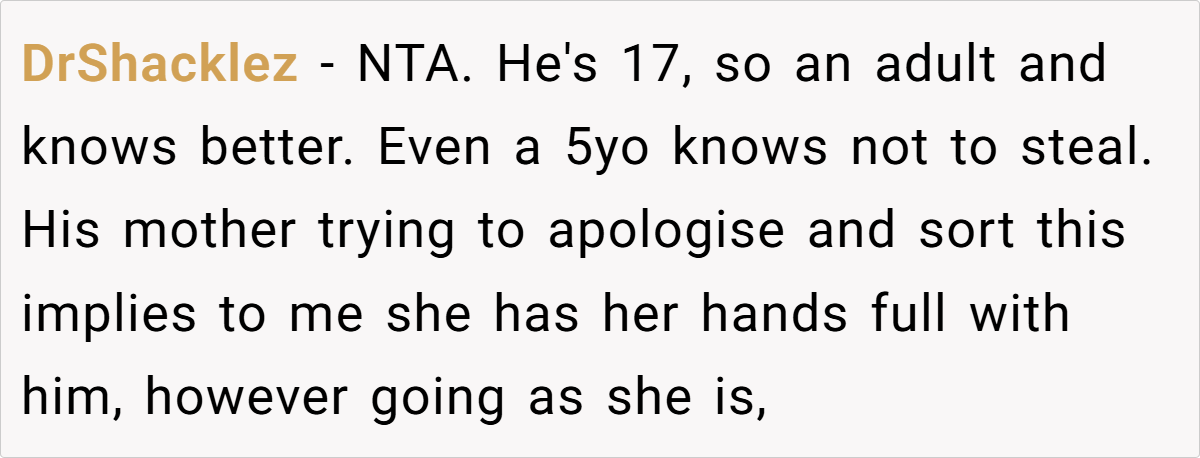


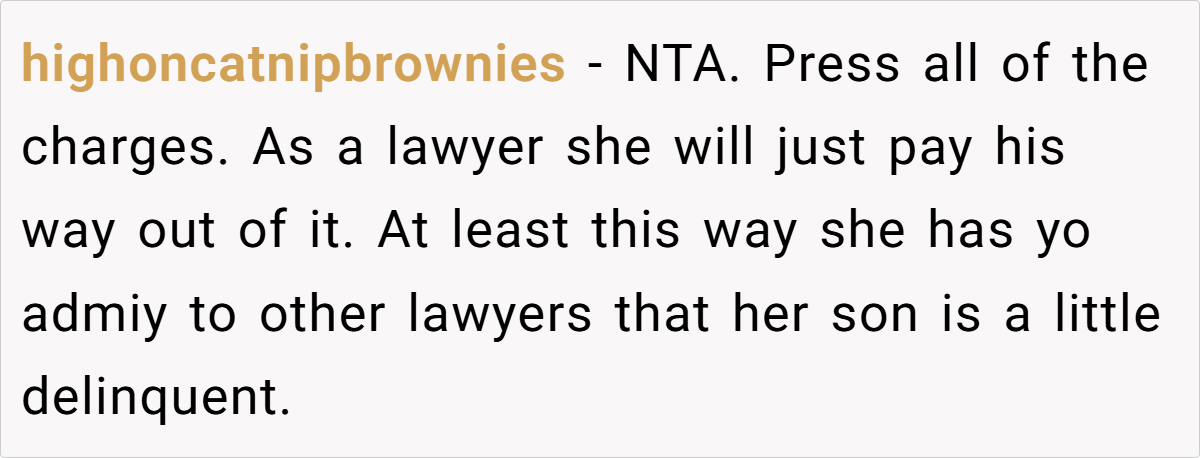



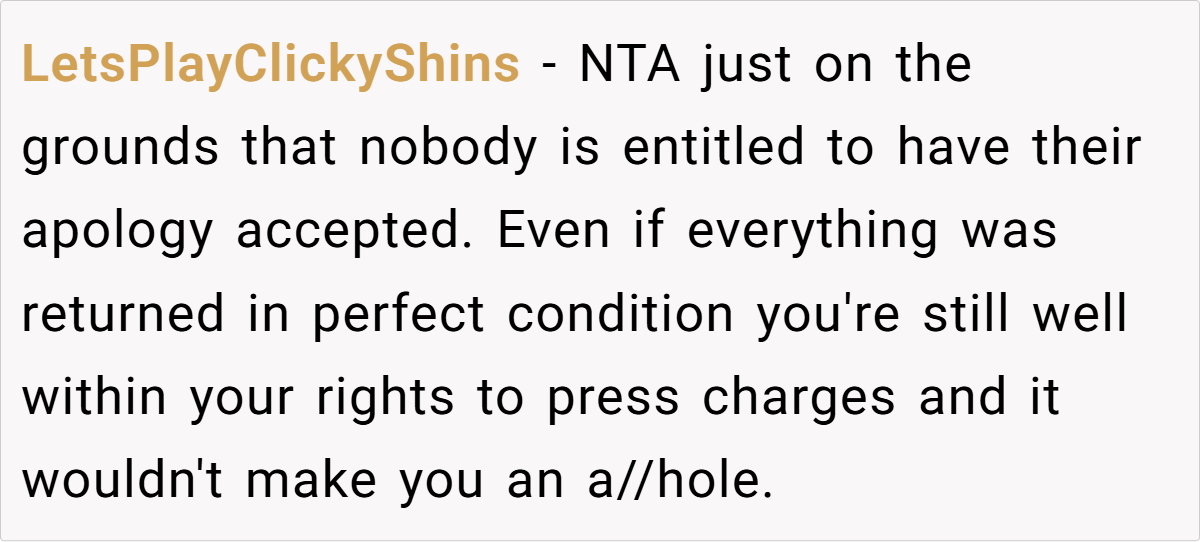
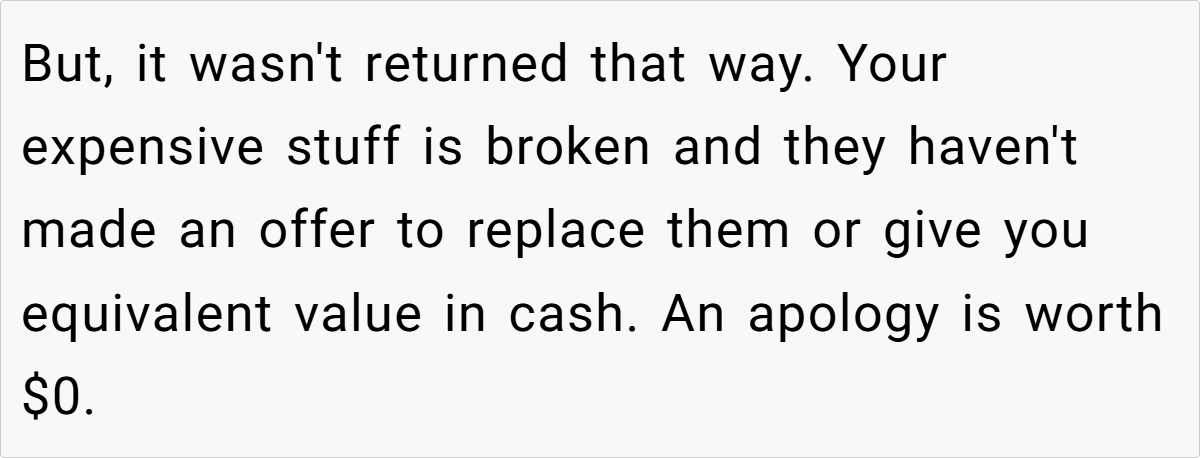
This incident underscores the importance of accountability, both from the perpetrators and their guardians. It raises pertinent questions about how society addresses juvenile offenses and the role of parental responsibility in fostering ethical behavior.
We invite you to reflect on this situation and share your thoughts: How would you handle such a circumstance? Do you believe the parents should be held liable for their children’s actions?

